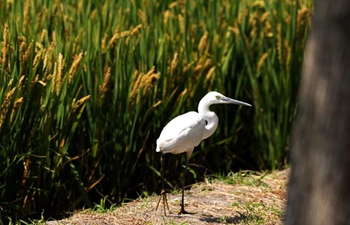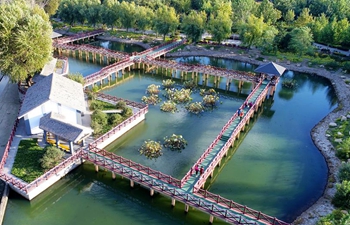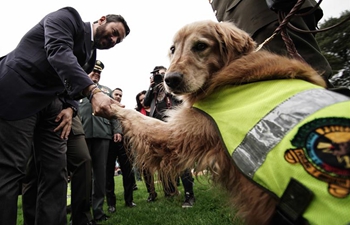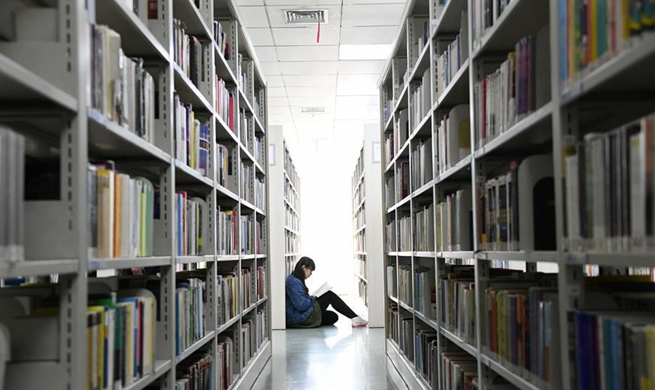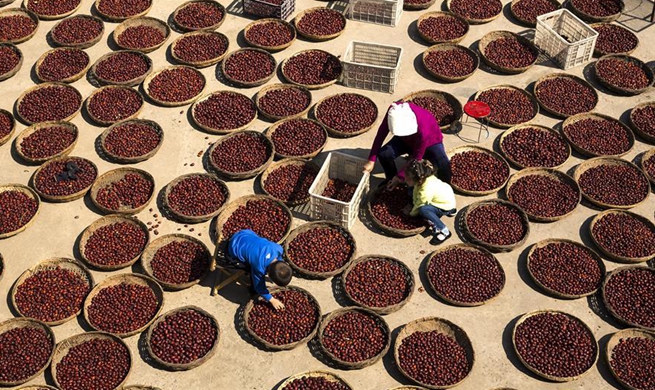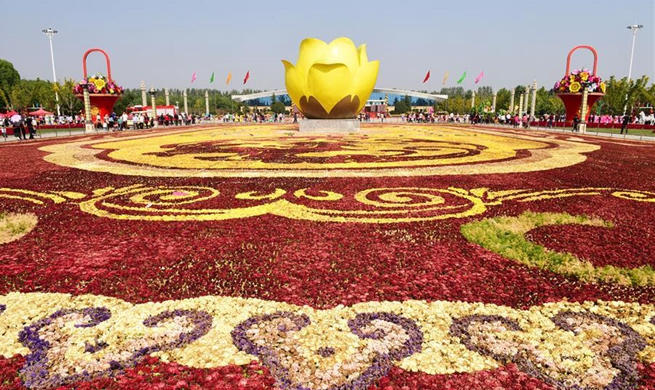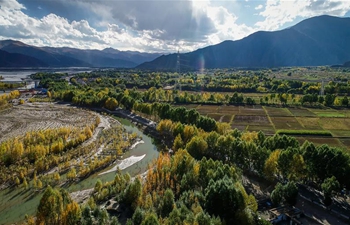ZALAMBESSA, Ethiopia, Oct. 5 (Xinhua) -- Fiyori Bizen, an Ethiopian mother of three, used to live a challenging life, as her home on the country's border with former bitter enemy Eritrea had suffered damages because of occasional armed clashes.
That all changed for Bizen, 28, on September 11, with the opening of the Ethiopia-Eritrea borders which had been closed for more than two decades ever since both nations fought a bloody two-year border war from May 1998 to December 2000, which left an estimated 70,000 people dead from both sides.
With the re-opening of the border earlier this month in the aftermath of fast paced diplomatic rapprochement since July between the two countries, Zalambessa and other Ethiopian entry points are busy serving as a gateway and meeting point in renewed commercial and cultural interaction between the two countries.
This renewed economic interaction between the two nations seemed unthinkable several months ago as thousands of soldiers from the two countries were in a state of armed conformation, a legacy of their bitter two-year border war.
Despite a peace deal signed in Algiers in December 2000 to end the armed conflict, the two countries remained in a state of bitter enmity, locked in a state of armed standoff along their 1100 km long border.
That hostility ended in July with Ethiopia and Eritrea signing a peace declaration, thereby ending their mutual hostilities, enabling the resumption of air services, re-opening of phone lines, restoration of diplomatic missions, in addition to re-opening of their common border.
Speaking to Xinhua, Bizen, whose house is on the outskirts of Zalambessa town, located in Ethiopia's northern Tigray regional state and is just several meters away from the Eritrean border, said her house has transformed from a shelter to one that is facilitating her new business of providing coffee drinks to travelers from both countries.
"I have an increasing customer list of drivers, regular commuters and soldiers from both countries, ever since my coffee drinks business opened a week ago," said Bizen.
Bizen said because of the insecurity in the area, many of her neighbors had in previous years relocated their homes and businesses to cities like Adi-Grat and Mekelle, far from the border areas, but her economic weakness had prevented her from doing similar relocation.
However, her economic misfortune had overnight turned into an economic advantage, as passenger and vehicular traffic between the two countries has increased exponentially since September, making her home an ideal place to rest and have drinks for transiting people.
Bizen also said the transformation from a housewife to a rising small business owner helped her supplement her husband's meagre income, allowing them to pay for school fees and daily needs of their three children.
"The good business opportunities enabled me to open other business portfolios including selling plastic products and hand-woven baskets, as I try to meet the various needs of my customers," she told Xinhua.
Nevertheless, the dividend for her from the re-opening of the border between the two countries has not only been monetary and security wise.
"With the border opening I have been able to reconnect with my long-lost relatives in Sahr town, just across the border in Eritrea, providing me mental relief and happiness," Bizen further said.
LANGUAGE TRANSLATION BUSINESS BOOM?
While, for border residents like Bizen the re-opening of the border between Ethiopia and Eritrea is tied to their localities, Kibreab Baraki, a part time lecturer and translator is hoping to literally cash in on his language skills.
Baraki speaks fluent Amharic, the working language of Ethiopia, Tigrinya, the working language of Eritrea and Ethiopia's Tigray regional state and English which is increasingly being used by civilians and government officials in both countries.
"With rising business ties between the two countries after the opening of their common border, I believe I can use my language skills to help reconnect Ethiopians, Eritreans and other nationalities once again," Baraki told Xinhua while sipping coffee drink inside Bizen's makeshift business stall.
However, Baraki is not limiting his ambitions to mere translation works, having already made contacts with tour operators in Eritrea to facilitate tourism opportunities between the two "brotherly nations."
"I'm currently studying the business prospects in translation and tourism fields and has devised plans to open with Eritrean colleagues joint business ventures," Baraki told Xinhua.
Nevertheless, Baraki cautioned the peace process between Ethiopia and Eritrea needs to be actively promoted at a ground level to ensure the newfound peace is lasting and has a win-win approach.
